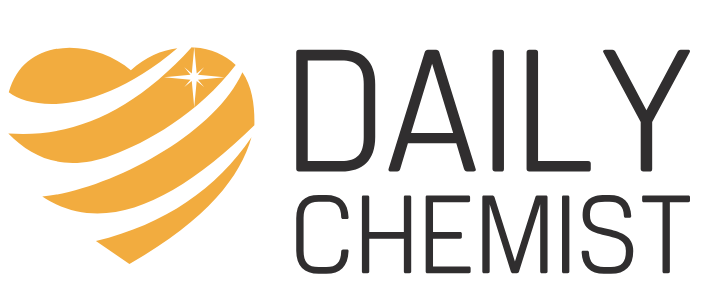Herpes is a painful, incurable condition caused by the herpes simplex virus (HSV) that affects at least 500 million people around the globe. In the United Kingdom, around 23% of adults have this infection. The figures may be as high as 50% in some parts of Africa and Asia. There are two kinds of this STI, HSV-1, and HSV-2. Both cause the same symptoms, but they are most often associated with different sexual activities. HSV-1 can transmit by close personal contact such as kissing or sharing eating utensils. It affects mainly the mouth area causing cold sores or fever blisters around the lips.
However, the type 2 infection usually infects the genital area. Contact an expert for effective treatment for herpes symptoms if you experience the symptoms.
Some Key Facts about the infection
- The disease is a sexually transmitted infection that affects both men and women.
- HSV results in hurting cold sores or blisters on the mouth, face, lips, gums, tongue, or throat.
- In rare cases, it can cause ulcers in or around the eye. Moreover, it can also cause sores on other body parts, such as the genitals, buttocks, and anal area.
- Symptoms usually appear within 2-14 days after coming into contact with someone infected by HSV. They can be mild or severe and usually last from 2 to 4 weeks. However, outbreaks can come back at any time for many years.
- Anyone sexually active can get the infection. Your risk of getting the virus may increase if your immune system is weak, for example, by taking drugs to prevent or treat rejection of an organ transplant or by having HIV/AIDS. It is also more likely to happen if you have unprotected sex with someone who has genital herpes.
There is no cure for HSV. However, medication can help reduce and shorten the length of outbreaks. The infection can cause birth defects if a woman gets type 2 infection during pregnancy. Therefore, if you are pregnant, you should always get tested for the infection. If you have the signs and symptoms, consult with an expert for suitable herpes treatment.
What are the symptoms of HSV-1?
The indications of both infections may be different. However, HSV-1 may show symptoms like pain, itching, and the appearance of blisters on or around the mouth, nose, genitals, or buttocks. They typically appear 2 to 20 days after exposure to the virus. Nevertheless, it is possible not to experience any symptoms at all. Once HSV-1 enters your system, it remains there for life. If you have oral-genital or genital-anal sex with someone who has this infection, the virus can enter your system through the sharing of bodily fluids.
What are the symptoms of HSV-2?
Type 2 infection, frequently referred to as genital herpes, is a contagious infection caused by a virus. It also refers to an outbreak of lesions on the skin or mucus membranes resulting from infection by HSV 1and HSV 2. The majority of people with herpes symptoms have contracted HSV-2.
In most cases, the symptoms appear as one or more blisters on or around the genitals, rectum, or mouth. These painful blisters break and leave sores that may take two to four weeks to heal the first time they occur. However, the infection stays in the body for life, and outbreaks can reoccur from time to time. When symptoms first appear, it is difficult to know if they are the outcome of HSV-1 or HSV-2. It is because many of the signs and symptoms are similar.
What is the most suitable treatment for herpes symptoms?
The infection causes cold sores and type 2 infection. Both viruses establish latency in sensory neurons such that the virus reactivates later in life, causing recurrent disease.
Famciclovir
An antiviral drug Famciclovir can treat and prevent cold sores. Famciclovir has very effective results against HSV 1.
Famciclovir (Generic Famvir) 125mg
Acyclovir
The antiviral drug Acyclovir can help treat genital herpes. However, some studies show Famciclovir is just as effective as and safer than Acyclovir. It has also become more popular due to its increasing availability and lower cost.
The medication was discovered in the early 1970s and patented in 1975. Moreover, FDA permitted the medicine in 1982 under the brand name Zovirax.
Aciclovir 400mg
Valacyclovir
Valacyclovir is also an effective remedy for herpes symptoms. It can prevent the recurrence of type 2 infection outbreaks.
Glaxo Wellcome developed Valacyclovir in the 1990s. It has been available for use in the United Kingdom since 1995 under the brand name Valtrex.
How do these medications work?
Famciclovir
It contains an amino acid called ‘Valine’, which is found in the human body. The drug works by blocking DNA synthesis, which reduces or stops the growth of viral DNA and prevents other viruses from entering into cells. As a result, the virus becomes inactive and is then flushed out naturally with time.
Acyclovir
This medicine works very simply by blocking the virus’ replication process. It does this by taking control of an enzyme, which replicates parts of the viral DNA to create more viruses. Acyclovir stops the virus from spreading by stopping these enzymes from replicating and healing most simple skin infections within a week or so. However, you should consult your doctor before starting any course of Acyclovir.
Valacyclovir
It comprises an amino acid called ‘Lysine’ that is found in the human body. The drug is a well-working solution for herpes symptoms and works by blocking DNA synthesis, which reduces or stops the growth of viral DNA and prevents other viruses from entering into cells. As a result, the virus becomes inactive and is then flushed out naturally with time.
Valacyclovir is also known as an ‘acyclic nucleoside analog’, which means that the acid-base of each molecule effectively links to the next. This compound allows for less frequent dosing than Acyclovir (twice a day), and high concentrations of medication are achieved throughout the body.
How can you prevent the herpes simplex virus?
The best way to prevent the infections is not to have sex at all, but that’s too much to ask for some people. If you are going to do it anyways, use a condom and do not spread your wings before checking if that person has the same type of virus. Following the preventive measures can help in better results.
Some more preventive measures are-
- Always use condom
- Get you and your partner tested for STIs before having sex
- Limit the number of sexual partners
- Discuss with your partner about the infection before indulging in sex; it may feel awkward, but it is essential
- Avoid sex with someone who has genital sores
- Avoid oral sex with someone with cold sores
- While you are intoxicated, avoid sex
You can look for more preventive steps, which can help avoid the infection. However, if you are undergoing treatment for herpes symptoms, prevention may bring better results.


